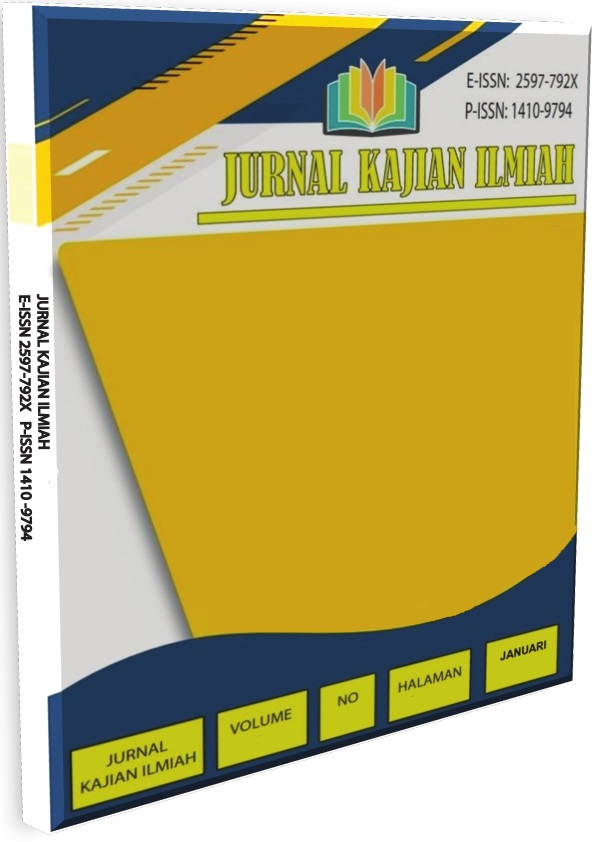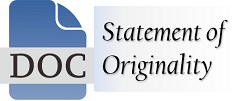Sekuritisasi Pandemi Covid-19 Di Indonesia
DOI:
https://doi.org/10.31599/y74dyt57Keywords:
Covid-19, Indonesia, Pandemi, SecurityAbstract
This study aims to examine the theory of securitization and relate it to the strategy undertaken by the Indonesian government to deal with the Covid-19 pandemic. This is interesting to study because the main demands on every country during this pandemic are; what to do, how to do it, is the strategy for handling Covid-19 by the state the answer for the wider community? This question is the duty of the state to be able to provide a sense of security for the community. The research methodology will be carried out under a qualitative umbrella with the thick description method. The results found in this study were that Indonesia initially considered Covid-19 only as a health problem before the WHO gave an appeal. It can be said that this appeal is a norm that was formed in which Indonesia must implement an appeal from WHO. This is a turning point for the Indonesian government in dealing with the spread of Covid-19. In addition to forming this justification, the Indonesian people are also an important object in tackling the spread of COVID-19 in Indonesia where the level of discipline of the Indonesian people determines the success of the Indonesian Government's direction in the issue of the spread of COVID-19 as a security issue.
Downloads
References
Agustino, L. (2020). Analisis Kebijakan Penanganan Wabah Covid-19: Pengalaman Indonesia. Jurnal Borneo Administrator, 16(2), 253–270. https://doi.org/10.24258/jba.v16i2.685
Ferhani, A., & Rushton, S. (2020). The International Health Regulations, COVID-19, and bordering practices: Who gets in, what gets out, and who gets rescued? Contemporary Security Policy, 41(3), 458–477.
Floyd, R., & Croft, S. (2011). European Non-Traditional Security Theory: From Theory To Practice. Geopolitics, History, and International Relations, 3(2), 152–179.
Irfani, K., & Arif, L. (2022). Strategi Membangun Kepercayaan Publik Dalam Penanganan Covid-19 Di Kota Surabaya. Jurnal Ilmiah Manajemen Publik Dan Kebijakan Sosial, 6(1), 69–86. https://doi.org/10.25139/jmnegara.v6i1.4538
Islami, H. S., Ponangsera, I. S., Azizah, M., Subiakto, Y., & Azwar, E. (2021). Strategi Peningkatan Kapasitas Masyarakat dalam Menghadapi Pandemi COVID-19 Guna Mendukung Keamanan Nasional di Kabupaten Pidie Jaya Aceh. PENDIPA Journal of Science Education, 6(1), 73–79. https://doi.org/10.33369/pendipa.6.1.73-79
Peoples, C., & Williams, V. (2014). Critical Security Studies: An Introduction (2nd ed.).
Prasojo. (2022). Nexus Sekuritisasi Kesehatan dan Komunikasi Kesehatan di Masa Pandemi. Jurnal Keamanan Nasional, 8(1), 26–39.
Sari, D. N. P., & Sukestiyarno, Y. (2021). Analisis Cluster dengan Metode K-Means pada Persebaran Kasus Covid-19 Berdasarkan Provinsi di Indonesia. PRISMA, Prosiding Seminar Nasional Matematika, 4, 602–610. https://journal.unnes.ac.id/sju/index.php/prisma/
Thamrin, D., Prasojo, Hutahaean, E. S. H., & Perdini, T. A. (2022). Study on Policing Management for Terrorism Crimes in Indonesia of the decade 2000-2020. Asia Pasific Journal of Business Economics and Technology, 2(2). http://apjbet.com/index.php/apjbet/article/view/39
Thamrin, D., Prasojo, & Perdini, T. A. (2022). Police Management Handles The Separatist Movement of Armed Criminal Group (ACG) In Papua Between 2017-2022. Asia Pacific Journal of Business Economics and Technology, 02(06), 104–116. http://www.apjbet.com/index.php/apjbet/article/view/97/79












_-_Copy1.jpg)




